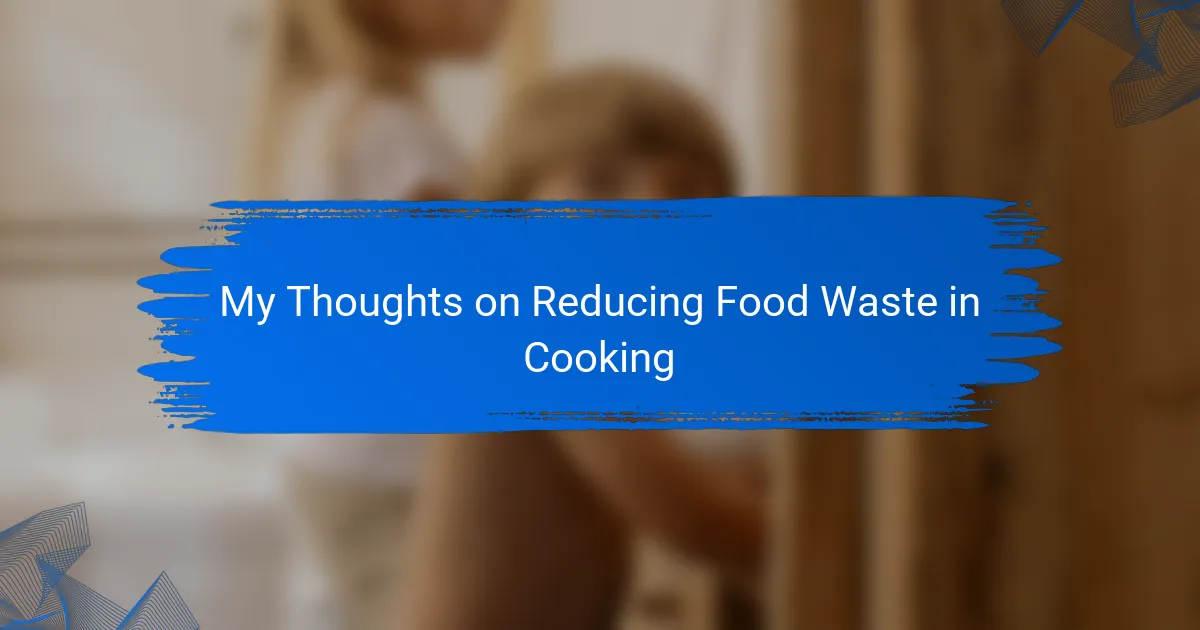Key takeaways
- Awareness of food waste helps identify shopping habits and encourages mindful meal preparation.
- Reducing food waste fosters family values such as patience and respect, strengthening family bonds.
- Planning meals around available ingredients and organizing storage can significantly cut down on food waste.
- Involving children in meal planning and food-saving activities encourages appreciation for food and creativity in the kitchen.
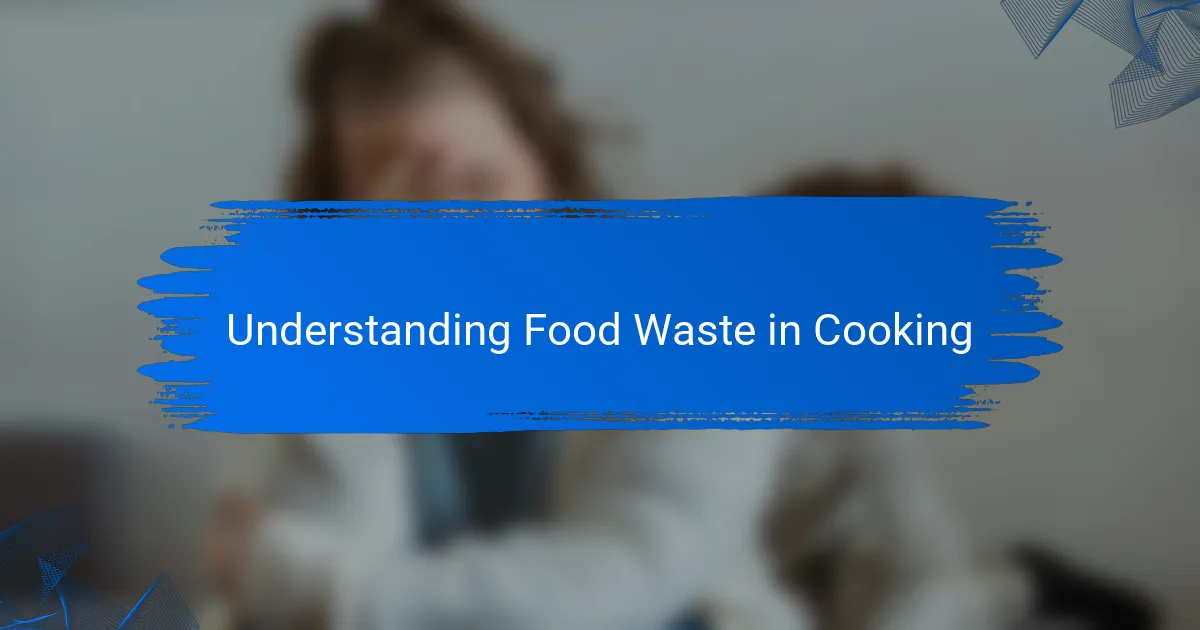
Understanding Food Waste in Cooking
When I first started paying attention to the food I toss during cooking, I was honestly shocked by how much ended up in the trash—peels, spoiled veggies, leftovers no one ate. It made me wonder, how often do we underestimate the real impact of these small losses in our own kitchens? Understanding food waste is really about recognizing these everyday moments when good food goes unused.
It’s not just about the money wasted, though that stings too, especially on a family budget in Cleveland. I’ve come to see food waste as a missed opportunity—to nourish, to save, and to respect the effort that went into producing that food. It makes me reflect on how we can be more mindful, from storage to meal prep, so less ends up as waste.
Have you ever thought about where your kitchen scraps go and what they mean beyond the bin? For me, understanding food waste in cooking revealed patterns I hadn’t noticed before—like buying too much or not using leftovers creatively. This awareness is the first step to changing habits and truly reducing waste.
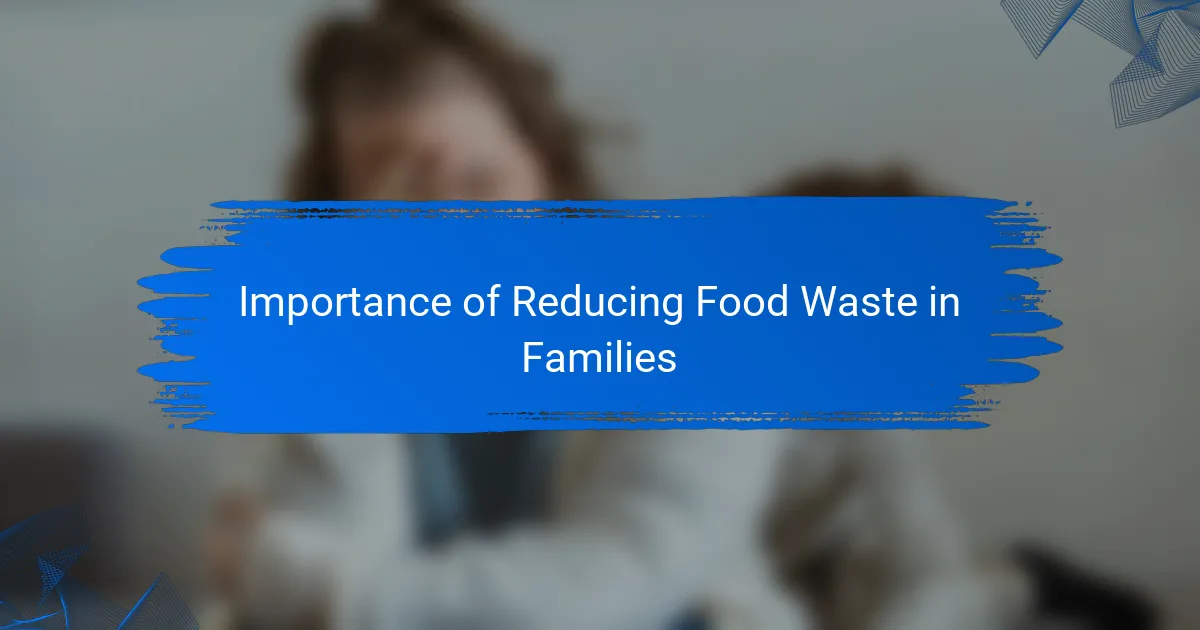
Importance of Reducing Food Waste in Families
When I talk about the importance of reducing food waste in families, I can’t help but think about how much it affects our household dynamics. Tossing out food isn’t just an economic loss; it also feels like a lost chance to show care for everyone at the table. Have you ever felt that little pang of guilt after throwing out a half-eaten meal? That feeling stuck with me long enough to push for change.
In my experience, cutting down on food waste creates a ripple effect beyond just saving money. It teaches patience, planning, and respect—values I want to pass on to my kids in Cleveland. Watching them learn to appreciate the food on their plates makes those extra efforts in meal prep feel deeply rewarding.
What surprised me the most was how reducing waste brought our family closer. Sitting down to enjoy every bit of a meal made me realize that waste isn’t just about food—it’s about the moments we miss when we rush or don’t communicate. That personal connection convinced me that food waste reduction is essential, not optional, in family life.
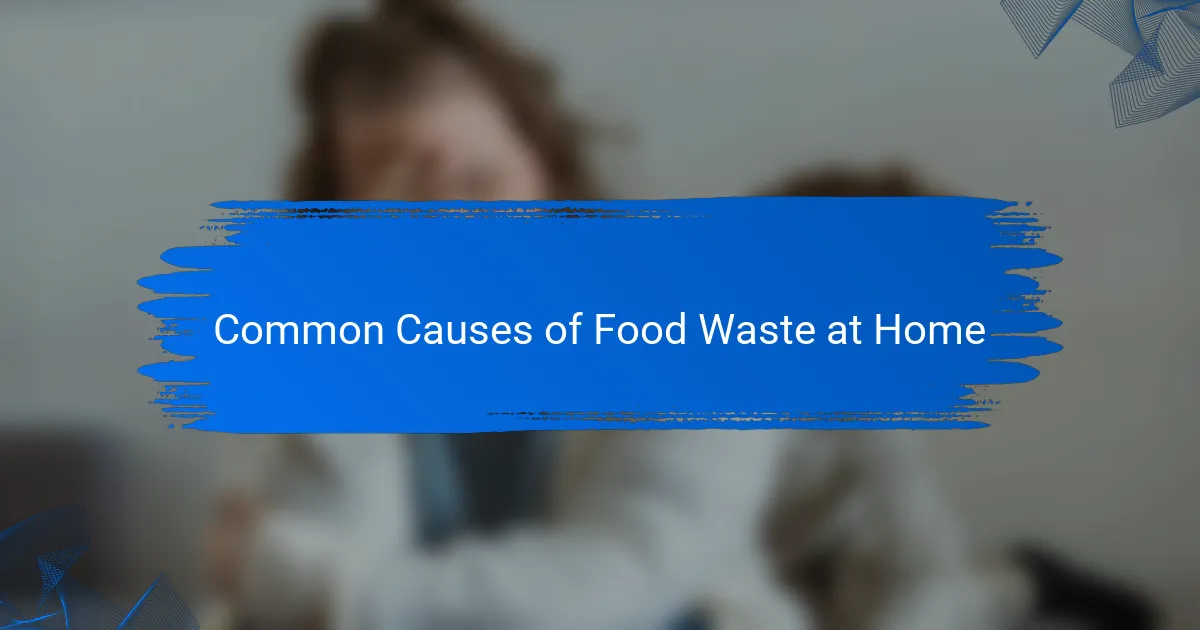
Common Causes of Food Waste at Home
One cause I keep noticing in my own kitchen is buying more than we can realistically use. It’s so easy to get caught up in sales or think we’ll cook bigger meals, but then some items just sit forgotten in the back of the fridge until they spoil. Have you ever opened your fridge only to find vegetables gone limp or leftovers past their prime? That moment always makes me pause and rethink my shopping habits.
Another culprit is poor meal planning. I used to wing it, grabbing ingredients without a clear idea of what I’d make. That approach often leads to half-cooked dishes that nobody finishes or random ingredients without a purpose. It’s frustrating because you realize food was wasted simply due to lack of preparation—a waste that feels avoidable once you start planning meals ahead.
Then there’s the leftover dilemma. I admit, sometimes I don’t get creative enough with what’s left on plates or in containers. Instead of transforming leftovers into new meals, they languish until it’s too late. I wonder how many times a little imagination could have saved perfectly good food from the trash. This has reminded me that reducing waste isn’t just about buying less; it’s about making the most of what we have.
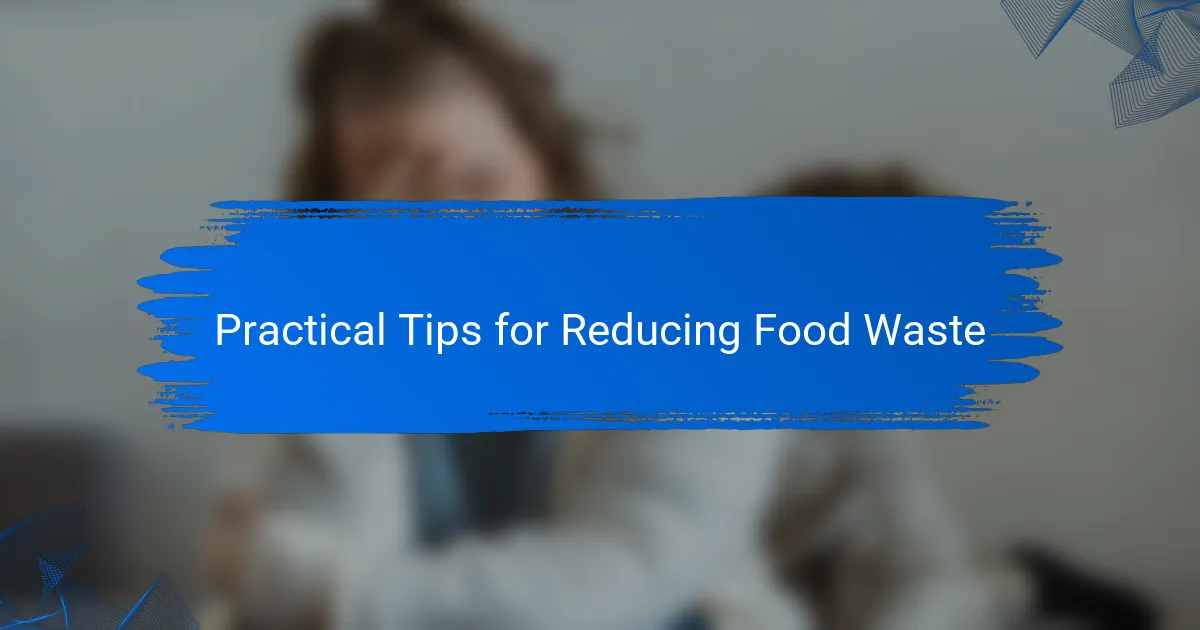
Practical Tips for Reducing Food Waste
One trick that’s made a big difference for me is planning meals around what’s already in the fridge. I started pulling out veggies and leftovers before grocery shopping, asking myself, “What can I turn this into?” It’s surprising how many fresh meals you can create by simply focusing on what you already have instead of buying more.
Another practical step I swear by is getting organized with storage. Using clear containers and labeling leftovers with dates helped me actually use food before it goes bad. Have you ever found mystery containers lurking in the back of your fridge? I used to, and it always felt like wasted effort until I made this small change.
I also try to embrace imperfect produce—it’s something I hadn’t thought much about until I realized how much good food I discarded just because it didn’t look perfect. Now, I ask myself, “Does this still taste good?” Most times, it does, and cooking with these “ugly” veggies has become a fun challenge rather than a chore. It’s a simple mindset shift that saves food and feels a bit like sticking it to waste.

Meal Planning for Cleveland Families
When I started meal planning for my family here in Cleveland, I quickly realized it wasn’t just about choosing recipes—it was about creating a system that fits our busy lives. Have you ever felt overwhelmed deciding what to cook after a long day? Planning meals ahead helped me avoid those last-minute scrambles that often lead to wasted food or takeout.
One thing that made a huge difference was writing down meals for the week and sticking to a shopping list based on that plan. It’s amazing how much clearer the fridge and pantry look when you buy only what you actually need. I found that this not only cuts down on waste but also keeps dinners less stressful, which is a win-win for any family.
Sometimes, I mix it up by involving my kids in the meal planning process. Asking them what they’d like to eat not only gets everyone excited but also reduces the chance of dishes going untouched. It’s a small step, but it makes me feel like I’m teaching them how to value food—and in Cleveland, where family meals are a big deal, that feels pretty important.

Sharing Personal Experiences on Food Saving
One memorable moment that sticks with me happened when I found a stash of forgotten bread in the back of the pantry. Instead of tossing it, I turned it into homemade croutons, and the whole family loved the added crunch in our salads. Have you ever had such a simple rescue turn into a new favorite? It taught me that saving food can be both creative and rewarding.
I also recall a time when I started sharing my food-saving tips with neighbors during a local Cleveland community gathering. Hearing their stories made me realize I wasn’t alone in this journey, and swapping ideas felt like building a mini support system. Sometimes, it’s these shared experiences that ignite fresh motivation and fresh recipes for reducing waste.
Reflecting on daily routines, I noticed that involving my kids in meal leftovers reinvention turned saving food into a fun activity rather than a chore. Asking them, “What can we make with these veggies?” sparked their creativity and made them proud to help. Have you tried turning food saving into family time? It truly changed how we all value what’s on our plates.
